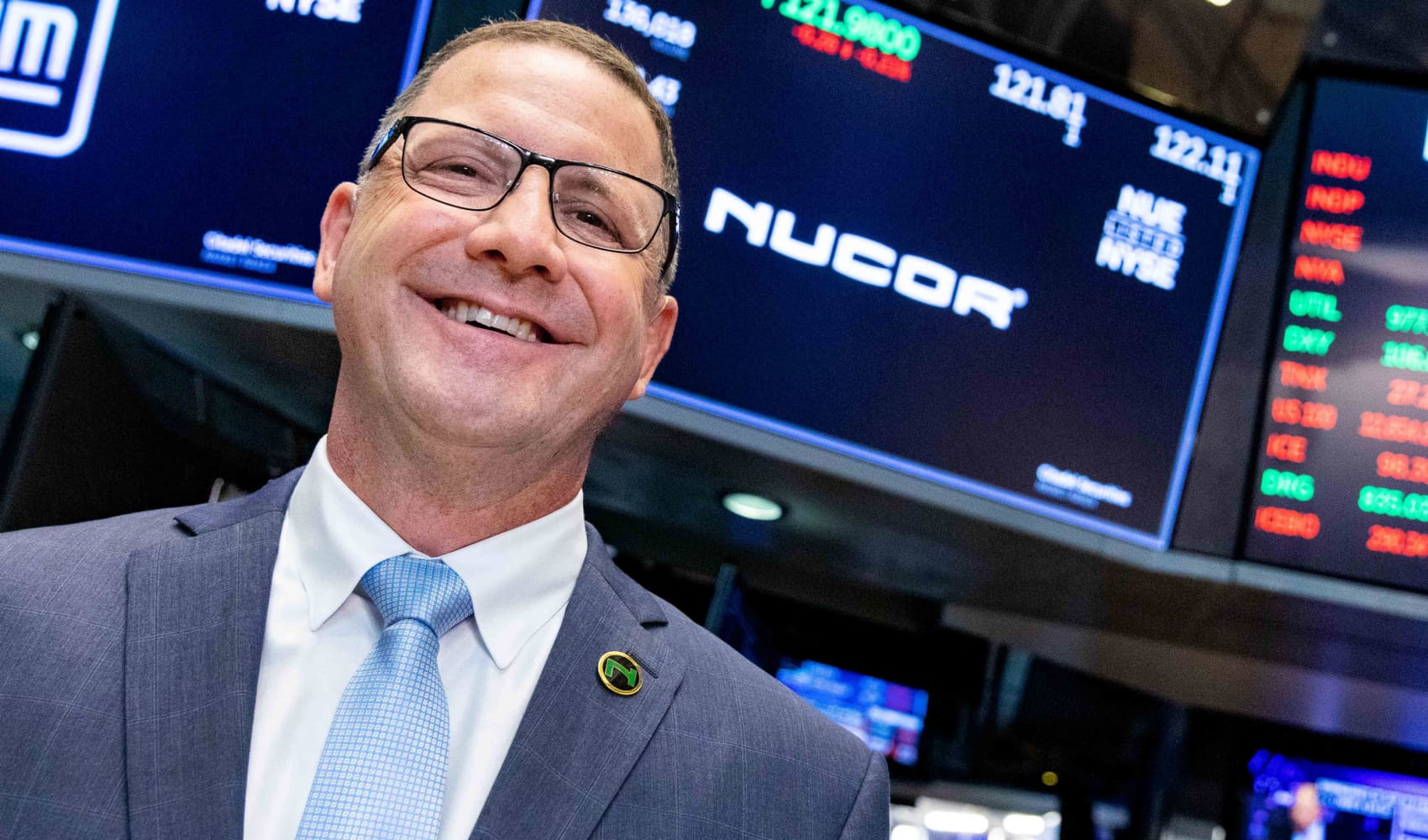
- Comparisons abound between the developing systems of OneWeb and SpaceX's Starlink, as both are building constellations with numerous satellites in low Earth orbit that provide internet service to anywhere on Earth from space.
- But OneWeb CEO Neil Masterson, who joined the company in November after its emergence from last year's bankruptcy, does not see Elon Musk's space business as a direct competitor.
- Masterson told CNBC that OneWeb's "approach to the market is just very different" versus Starlink, with the former focused on enterprise customers.
Space-based broadband provider OneWeb launched another 36 satellites successfully on Thursday, moving the company closer to beginning initial service from its growing network in orbit.
Comparisons abound between the developing systems of OneWeb and SpaceX's Starlink, as both are building constellations with numerous satellites in low Earth orbit that provide internet service to anywhere on Earth from space.
Get Tri-state area news and weather forecasts to your inbox. Sign up for NBC New York newsletters.
But OneWeb CEO Neil Masterson, who joined the company in November after its emergence from last year's bankruptcy, does not see Elon Musk's space business as a direct competitor despite the comparisons.
Putting it simply, Masterson said that OneWeb's "approach to the market is just very different" versus Starlink, with the former focused on enterprise customers and the latter going direct to consumers' households.
"There are some areas where we will compete, I suspect, particularly around serving governments, but governments will always buy more than one service," Masterson told CNBC. "I think there'll be multiple players who will be able to be able to be successful in addressing their market."
Money Report
The satellite-based field of data communications continues to broaden even beyond Starlink.
OneWeb faces competition from fellow enterprise-focused satellite service Telesat, as well as from Lockheed Martin's recent partnership with space-based 5G startup Omnispace and the plans of satellite-to-smartphone specialist AST & Science.

While Masterson acknowledge that he pays close attention to both likely and potential competitors — "you've got to be paranoid" — his focus remains on getting OneWeb to market and executing its rollout plan. OneWeb's satellite network is a business-to-business model, planning to deliver service through existing telecommunications companies, internet service providers, and other distributors.
OneWeb's "proposition is very simple," Masterson said: "We provide fiber where there is no fiber," whether that's cellular backhaul, acting as an emergency backup, or building WiFi networks for remote factories and manufacturing.
"One of the reasons we're going down that sort of B2B route is because we think that those players already working in those markets and communities ... understand the price points of the end consumers really well," Masterson said. "Those price points [can be] very different in different parts of the world."
The U.K. is working on a new $6.9 billion internet infrastructure program called 'Project Gigabit," with government leaders meeting with SpaceX among a number of technology companies.
While Masterson declined to comment specifically on whether OneWeb was also speaking with Project Gigabit leadership, he did say that the company "has been speaking to various elements of the government" and other organizations in the U.K. market.
Notably, the U.K. government is part of OneWeb's ownership, having joined Indian telecommunications conglomerate Bharti Global in investing $1 billion to finance OneWeb's return from bankruptcy. OneWeb raised another $400 million in January from Hughes Network Systems and SoftBank Group, with the latter a return investor — as SoftBank had invested $2 billion into OneWeb before its bankruptcy.
"This is a highly regulated business and it requires market access in different parts of the world and good relationships with regulators," Masterson said. "Having a flag behind us is really helpful, and Bharti brings incredible telco-know-how, execution capability and scale."

OneWeb now has 146 satellites in orbit, with the network planned to have 648 satellites to provide global service. OneWeb expects to be able to begin offering regional service by the end of the year to northern reaches of the world — above 50 degrees latitude, with targeted regions including the U.K., Europe, Greenland, Canada and Alaska — after three more launches.
Masterson said OneWeb plans to open a demonstration site in the U.K. in April, to begin showing its telecommunications customers tests of OneWeb's capabilities. The next phase of OneWeb's growth will look to the area effectively between South Africa and the Earth's South Pole, with plans for service in places such as Australia.
"I've been nose to the grindstone [since arrive in November], making sure we were setting our priorities and we're moving forward," Masterson said. "But I would say that, without exception, the conversations and interactions I've had with customers have been very positive. There's no doubt to me that demand's there."






